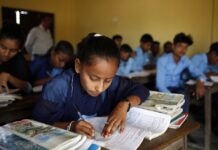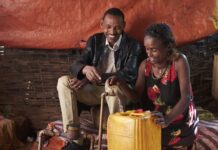Diverse but not divided: “This is a village in which Christians and Muslims live together in harmony and love. We help and support each other. In other places, there’s conflict but not here. We live together in peace.”
Over the past year, we have seen people come together to show unprecedented acts of kindness and solidarity in the midst of the global pandemic.
For the people of Frat in western Ethiopia, this ethos of togetherness is a way of life. They call it “wenfell”, meaning ‘collaboration’.
Christians and Muslims live side by side, celebrating special events together. Neighbours support each other with their farming, women collect money to help any family when in need, men help women collect water although it’s traditionally a task carried out by women, and they share water if people are unable to collect it. Many of the community came to Frat in the famine of 1983-85, and have supported each other to carve out good lives.
However, a lack of basic facilities like clean water, exacerbated by the changing climate, poses insurmountable challenges. Families spend hours each day collecting dirty water from a river, which often causes sickness. Some water sources are depleting over time, while the hotter summers and unexpected storms destroy crops, their only source of income.
Through its Future on Tap appeal, international charity WaterAid is inviting communities to help transform lives with clean water in Frat and around the world. The UK government will match donations made by 4 February 2021 up to £2 million, making double the difference in climate-vulnerable communities.
With clean water, lives and livelihoods are protected. Families can meet their basic needs, stay safe and healthy, have time to go to school or work, and can grow food even when the weather is unpredictable.
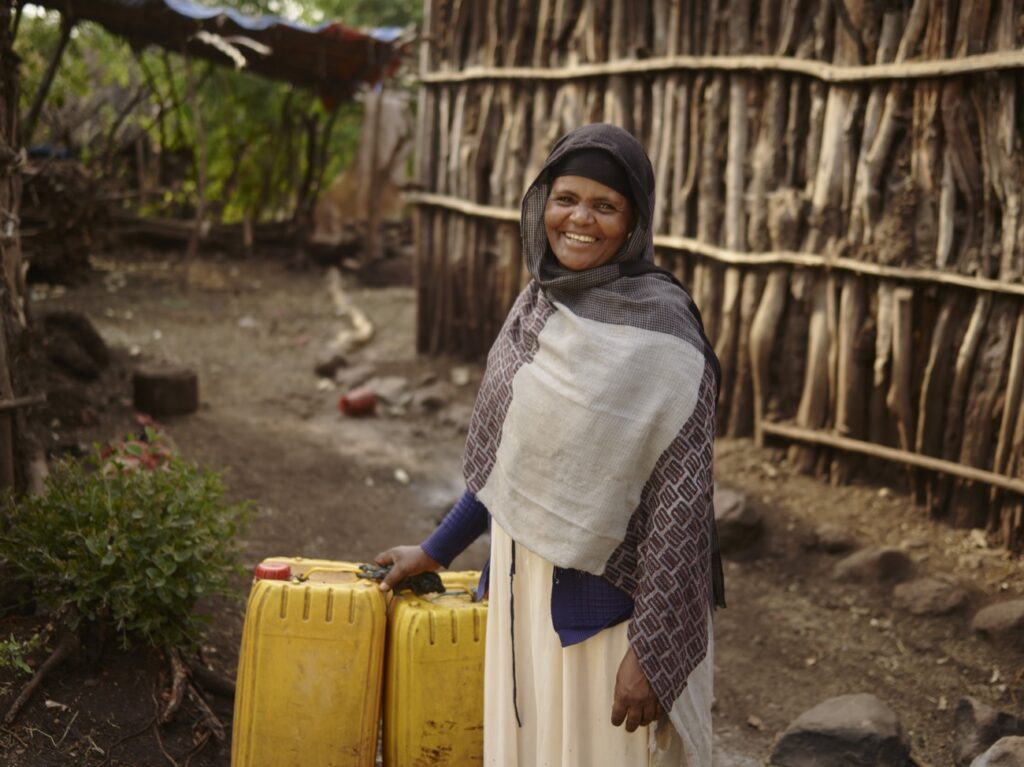
Hawa Yiman-Mohamad, 44, who came here aged six at the time of the famine and is chair of the community’s women’s groups, says: “The biggest problem facing our community is the lack of water and electricity. Men and women have to work together and help each other. I always made my son and daughters take turns when collecting water, so we all help.
“We have Muslim and Christian women’s groups, but we share information and the money we collect between us. I have represented the women’s groups with the local government. It makes me happy that I have helped my community.”
Irrespective of religion, ethnicity or background, the villagers in Frat have put togetherness at the heart of their community, helping them in the face of adversity.
Aliy Abebe, Hawa’s older brother, is s a Muslim leader and promotes harmony and togetherness in his village and surrounding areas.
“This is a village in which Christians and Muslims live together in harmony and love. We help and support each other. In other places, there’s conflict but not here. We live together in peace.”
Aliy worries about the young people as some young men are risking their lives in search of a better life. His eldest son Ibrahim went illegally to the Middle East. He was abducted and badly beaten on his journey, and eventually deported. He has now moved to the nearby town and Aliy’s other son Hassen wants to attempt to leave the country.
“Ibrahim says he will never move back to the village while we have to walk to collect water and there’s no electricity. But if things improve, he’ll come back as it’s the land of his mother and father.”
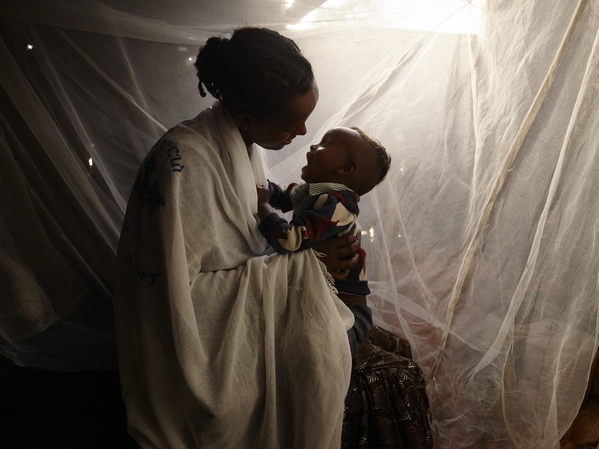
Aynwaga Gebeheyu, 24, a Christian, set up a café in Frat after being forced to leave her home because of ethnic conflict. She had clean water where she lived before, so it was hard for her and her family to adjust to using river water here. They all fell ill the first time they drank the water from the river.
“My son was a healthy fat baby and now he keeps losing weight. I tried my best to get him medical treatments but then he drinks the water and falls sick again, it’s just a vicious circle.
“The best thing about this community is we live in harmony here. We drink coffee together, we eat injera together and we celebrate holidays together. We are all one people.”
Kemal, 55, a farmer with one hectare of land, has spent most of his life here. He says: “This place was a barren land before people started to settle here in 1985/6. Christians and Muslims didn’t have strong ties then, but we started to come together, build houses and now we are very close and feel we are one community. My philosophy in life is to learn to live with other people.”
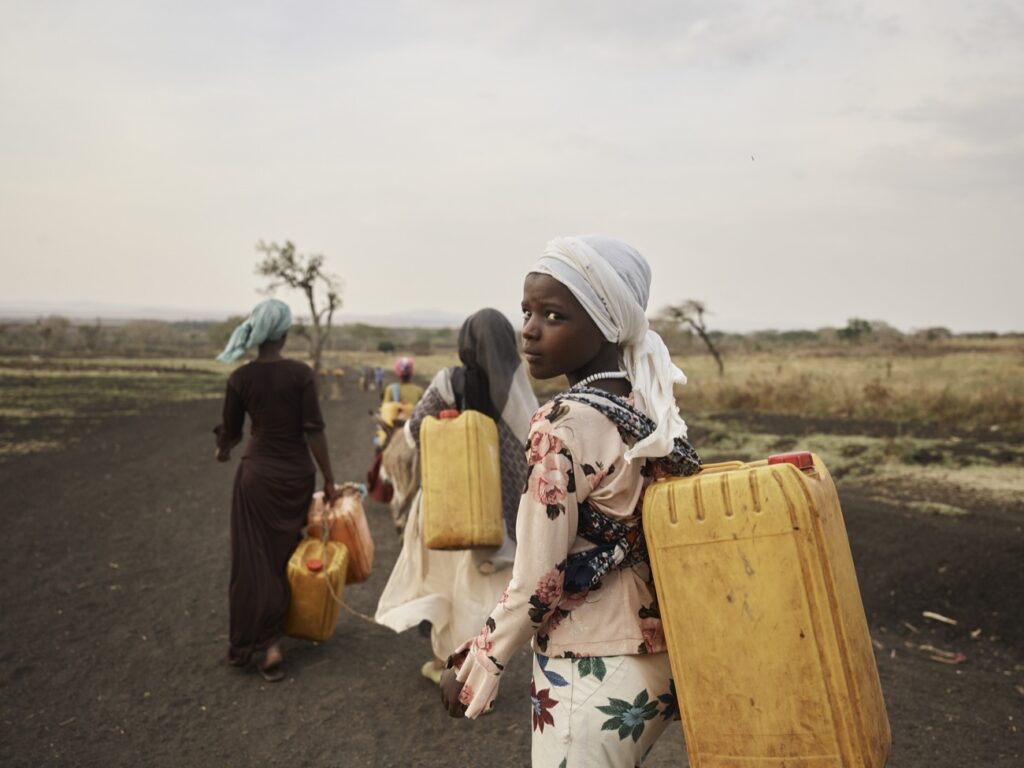
Six in ten Ethiopians do not have clean water close to home. The country ranks in the bottom quintile Notre Dame Global Adaptation Initiative Country Index for its vulnerability to climate change and its readiness to improve resilience. Ensuring a reliable source of clean water will help communities withstand the effects of climate change.
Tim Wainwright, Chief Executive, WaterAid, said: “This year many of us have found strength and solidarity in the communities around us and this is a way of life in the community of Frat.
“Their daily challenges include finding clean water but the community is built on an ethos of pulling together to help each other through times of need, which is inspiring. This winter by supporting the Future on Tap appeal the WaterAid community will stand with the people of Frat and help bring clean water, toilets and hygiene that transforms lives.”


